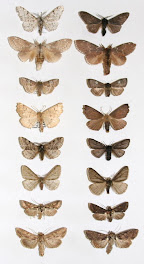The study highlights the importance of including information on ecological processes when designing reserves and other types of marine protected areas, the scientists said. It is one of the first studies to link reproductive variation with key ecological processes on a scale that's relevant to management and conservation. The findings were published today in a professional journal, Proceedings of the National Academy of Sciences.
"This study demonstrates that not all ocean places are equivalent, and that some populations are more likely than others to contribute to future generations," said Heather Leslie, a marine ecologist at OSU. "This could serve as a model for how to link information on biodiversity patterns with underlying ecological processes."
One wonders about the efects these kinds of hotspots could have on speciation and evolution - the study was more about the implications for conservation:
Variability in ocean currents and bottom topography, as well as biological interactions, all can contribute to differences in the productivity of marine ecosystems. Biodiversity protection and enhancement of nearby fisheries are among the goals of marine reserves, the researchers said, and an important aspect of siting effective reserves would be understanding how the productivity of key populations vary.
"Not all ocean areas are the same, and the likelihood of fulfilling the objectives of reserves and other area-based management efforts would increase if we understand the ecological processes responsible for biodiversity patterns," Leslie said.
Integrating this information is particularly important, Leslie said, given the forecasts of changes in ocean currents and other biological and physical processes due to climate change.








